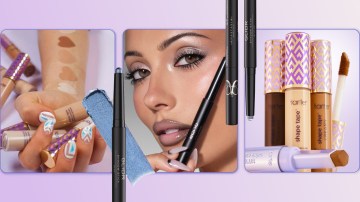The sandals brand Teva has been around since the 1980s, but its product hasn’t changed much in those years. The brand’s sandals of today look remarkably similar to the strappy, thick-soled products it sold in the ‘80s.
But its consistency has made the brand a fascination of streetwear and sneaker enthusiasts. It’s also what led Sean Wotherspoon, the sneaker designer and streetwear aficionado, to team up with Teva on a new collection releasing later this month. Wotherspoon reached out to Teva for a collaboration earlier this year, eventually developing a collection of updated takes on three different Teva models, releasing on August 14.
Teva’s collaboration with Wotherspoon is both a sign that sandals are having a moment, particularly among fashion-forward men, and an indication of how Teva is seeking to grow its audience. Teva’s two sister brands Ugg and Hoka, all owned by parent company Deckers, are on big hot streaks at the moment, but Teva has been slow to catch up. Teva is following Hoka’s lead by leaning into sneaker enthusiast communities and collaborating with big names like Wotherspoon.
According to Teva’s product director, Jess Bensley, the collaboration marks the most “design-forward project” the brand has ever done. While it’s not the first streetwear collaboration in Teva’s history — it has collaborated with Japanese bag brand Porter and New York streetwear boutique Extra Butter in the past — it’s the most directly targeted at the streetwear community.
Bensley said bringing in Wotherspoon was necessary to infuse what is normally a function-first product with more design flair. Wotherspoon has collaborated with brands from Gap to Nike, and his Nike Air Max ’97 shoe was one of the most popular Air Max models of the early 2020s.
“We’re really grounded in function as a brand,” she said. “We prioritize that in all of our footwear. Sean brings the streetwear element forward with his styling and color and materials.”
The three styles in the collection include two versions of the Teva Wraptor, a discontinued style from the early 2000s. Rather than a reissue, these are fully new shoe models inspired by the Wraptor of old, coming in both closed and open-toed versions.
To take advantage of attracting a streetwear customer, the collection is being sold at U.S. streetwear retailers Kith and Extra Butter, as well as at a limited-time pop-up in Tokyo, where both Wotherspoon and Teva have a significant following.
Teva’s collaboration is timed with a growing wave of interest in sandals in menswear communities. While the sneaker craze of the 2010s has calmed down, fashion-forward men are now increasingly drawn toward styles like mules, flip-flops and the kinds of retro gorpcore sandals that Teva is known for. At Louis Vuitton, Pharrell showed a number of looks involving flip-flops and sandals earlier this season, as did The Row. A number of men in Hollywood have made public appearances in sandals, and the Japanese designer Takashi Murakase brought his flip-flop brand, Ohana Hatake, to the U.K. with a takeover at Selfridges.
“With sneakers being such a big part of culture, the sports sandal is a good segue product into sandals,” Bensley said. “When you see Birkenstock or Teva rising in popularity, it’s not usually a new silhouette. A lot of times it’s a product that we’ve been selling for a long time. Especially on the men’s side, the most important thing for us is staying true to the brand’s history.”
Whatever boost comes from the Wotherspoon collaboration will be important for Teva. Deckers separates its revenue figures into Ugg, Hoka and the rest of its brands lumped into a category it labels Other Brands — included are Teva and the performance footwear brand Ahnu. In its most recent earnings report from the end of July, Deckers said both Ugg and Hoka saw their revenues increase by nearly 20%. Hoka alone makes up more than half of the company’s revenue.
But the Other Brands category saw revenues fall by 19% in the same period. On top of that, Deckers does much of its manufacturing in Vietnam, which is likely to be hit with high tariff rates. Currently, it’s at 20%, though negotiations between the U.S. and Vietnam are still ongoing. Deckers is already planning to take $185 million in damages from tariffs, up from its previous estimate of $150 million. The company will phase in gradual price increases across its brands to make up for it, according to Deckers CFO Steve Fasching.
The new direction for Teva is just one of many changes at Deckers since new CEO Stefano Caroti took over at the end of 2024. It has sold off one of its brands, Sanuk, and announced the wind-down of another, Koolabura.




